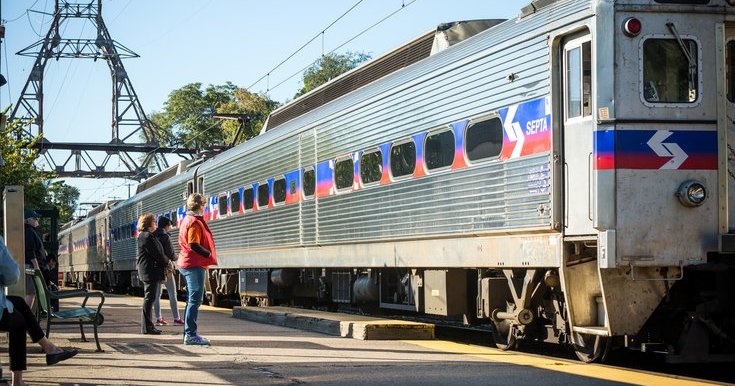SEPTA’s board of trustees voted Thursday to approve a budget plan that will slash service on the system by nearly half and increase fares steeply if state lawmakers don’t approve more funding for public transportation agencies.
The vote was held after months of warnings about the dire consequences the region faces if SEPTA is left without funds to close an annual $213 million deficit in its operating budget.
MORE: SEPTA seeks input on how to improve dangerous Erie Avenue corridor
“This is a vote none of us wanted to take,” SEPTA Board Chair Kenneth E. Lawrence Jr. said. “We have worked hard as an authority to prevent this day from coming because we understand the impact it will have on our customers and the communities we serve. To be clear, this does not have to happen.”
SEPTA’s first round of cuts will come Aug. 24 with the elimination of 32 bus routes, reduced trips on all rail services and the termination of express subway service to the Sports Complex in South Philly.
On Sept. 1, fares will jump by an average of 21.5% for all riders, raising the base fare for bus and metro trips from $2.50 to $2.90. Then on Jan. 1, SEPTA will eliminate five Regional Rail lines and more bus routes, in addition to imposing a 9 p.m. curfew on all remaining rail services.
Lawmakers in Harrisburg are continuing negotiations on Pennsylvania Gov. Josh Shapiro’s proposed $51.5 billion budget, which would include about $292 million per year for public transit agencies over the next five years. SEPTA would get about $166 million in the first year.
Shapiro’s plan to bolster public transportation — passed by the state House earlier this month — would dedicate an increased share of the state’s sales tax to agencies like SEPTA and Pittsburgh Regional Transit. The Democratic governor’s proposal has faced resistance from Senate Republicans, who have argued the state needs to address its own structural budget deficit and find a guaranteed funding source for public transportation.
The bill passed by the House would authorize the state to float $500 million in bonds for road and bridge repairs, addressing one of the GOP’s top priorities, and would allow Shapiro to form a commission to develop a long-term transit funding plan by the beginning of next year.
SEPTA has grappled with budget dilemmas ever since federal COVID-19 funding expired at the end of the last fiscal year. Act 89, the state’s previous funding model for public transportation, expired two years ago and was not renewed.
When SEPTA planned to increase fares and reduce service last year, Shapiro stepped in to provide $153 million flexed from PennDOT highway projects as a stop-gap measure.
State lawmakers have floated a variety of proposals to create sustainable funding for public transportation. Options have included taxing games of skill, giving local governments more taxation authority for transit, and increasing state taxes on ride-hailing companies, rental cars and vehicle leases.
SEPTA has taken a number of measures to cut costs and raise revenue to reduce its budget shortfall. The authority reinstated fees at its Regional Rail parking lots last year, froze management pay, cut funding for third-party consultants and eliminated some fare discounts. The budget approved Thursday would freeze all hiring starting Sept. 1.
“This budget will effectively dismantle SEPTA – leaving the city and region without the frequent, reliable transit service that has been an engine of economic growth, mobility and opportunity,” SEPTA General Manager Scott A. Sauer said. “Once this dismantlement begins, it will be almost impossible to reverse, and the economic and social impacts will be immediate and long-lasting for all Pennsylvanians – whether they ride SEPTA or not.”
